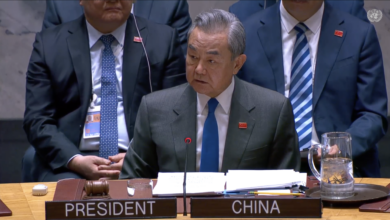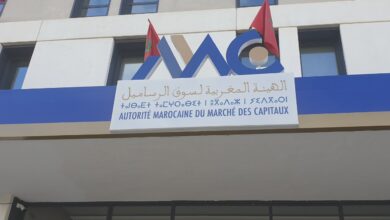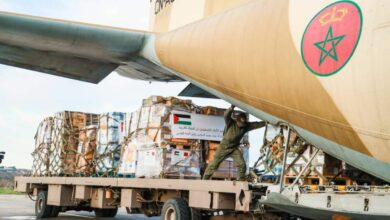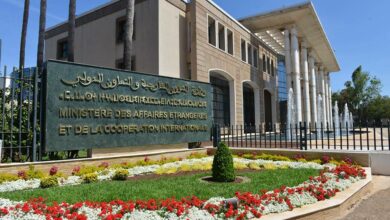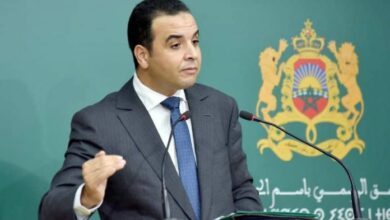Non-Aligned Movement: Heated Exchanges between Mr. Hilale and Algerian Ambassador in Baku
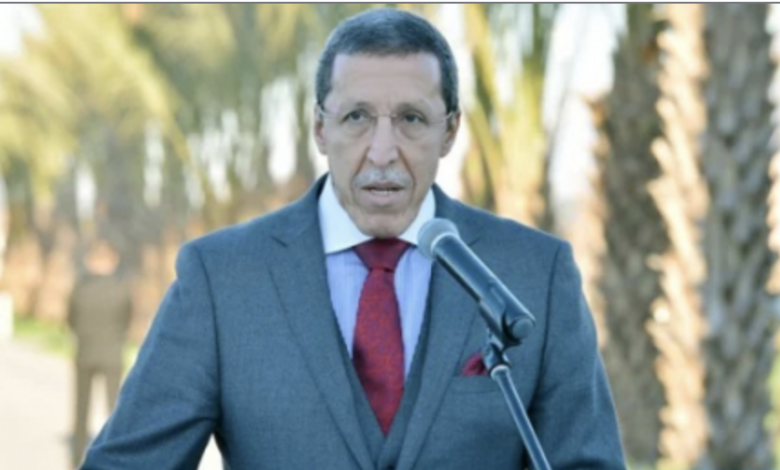
Algeria’s permanent representative has twice used his right of reply to express his astonishment at Morocco’s speech, delivered the day before, on the pretext that it attacked his minister and arguing that the latter did not mention Morocco, before pouring into his usual diatribes on the Moroccan Sahara.
In his response, Ambassador Hilale recalled that he had never mentioned the name of Algeria in his speech, unlike Minister Attaf who tackled the Moroccan Sahara issue, which is an integral of the Kingdom, while congratulating the Algerian ambassador for having recognized himself in the subliminal insinuations of Morocco and for having received its messages well.
In this regard, he ironically recalled the adage: “if the cap fits, wear it”, which perfectly suits the reaction of the Algerian diplomat.
Mr. Hilale also slammed Algeria’s intellectual terrorism, which arrogates to itself the right to say and do anything but becomes offended when Morocco responds to its misconceptions, illustrating its remarks with concrete and revealing examples: minister Attaf can talk about the United Nations Charter and the principles of Bandung but not Morocco, when he invokes the articles of the principles of Bandung in particular the 1st one on the respect of the objectives and principles of the UN Charter, the 2nd one on the respect for the sovereignty and territorial integrity of all States, the 4th one on non-intervention or non-interference in the internal affairs of another country, the 7th one relating to abstention from any aggression or from using force against the territorial integrity or political independence of any country and the 8th one on the peaceful settlement of disputes.
Algeria can invoke the Security Council resolutions, but becomes irritated when Morocco reminds it of its rejection of these same resolutions. Algeria has full latitude to call for the resumption of the political process only with its proxy, the “polisario”, but it rejects this call when Morocco reminds it of its primary responsibility in this dispute and asks it to obey the Security Council, which quotes this country five times in its latest resolutions.
Algeria can boast of being the zealous advocate of the right to self-determination in the Moroccan Sahara, but runs amok when Morocco alludes to the claim of this UN principle by the Kabyle populations. Algeria has been trying desperately for half a century to undermine the territorial integrity of the Kingdom of Morocco, but it cries out at the external threat as soon as Morocco raises the slightest subject that it considers detrimental to its own territorial integrity.
Reacting to the accusation that Morocco is seeking to change the geographical name of the Sahara, Ambassador Hilale deplored the Algerian representative’s ignorance of the history of the Moroccan Sahara. Reminding him that these provinces were Moroccan for centuries until the Spanish invasion in 1884. Its populations swore allegiance to the Sultan of Morocco, as they still do since their return to the Motherland. Recalling him that allegiance, enshrined in the opinion of the International Court of Justice, is an oath of fidelity, loyalty and obedience of the population towards its sovereign, which dates back several centuries in Europe as in Morocco. It continues to be expressed as was the case recently during the enthronement of King Charles III of the United Kingdom.
In addition, the term “Spanish” arose much later in relation to the Spanish occupier, including when Morocco registered this issue within the UN Decolonization Committee in 1963. And finally, the adjective “Western” was not associated with it until much later.
The diplomat reminded his Algerian counterpart that there is no “Western Sahara” but only the “Moroccan Sahara”, as it was called before its colonization, and it will keep this original geographical name until the end of times.
He also told him that whenever he mentions the “Western Sahara”, he must expect the energetic and immediate reaction of Morocco.
Mr. Hilale concludes by telling the Algerian ambassador: “For all Moroccans, the Moroccan Sahara is a cause. For you, it is an agenda of adversity, hostility, destabilization not only towards Morocco but towards the entire Maghreb reggion”. Also, “it is time for Algeria to face the facts of the fiasco of its Polisario project, which is a political, humanitarian and socio-economic failure with the consequences of its financial cost for its own country, and geopolitics cost with the construction of the Great Arab Maghreb being taken as hostage for three decades”.
ALdar : LA MAP

